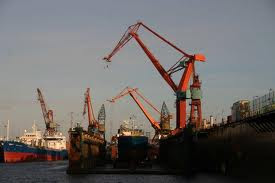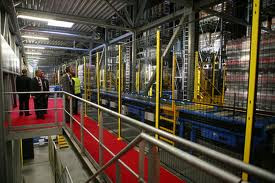

The dictionary defines logistics as ?The time related positioning of resources.? Hence, logistics can be considered as an implement for getting resources such as products, people, and services as and when they are needed. It is not easy to manufacture any product or promote it without proper logistical support. Business Logistics entails the amalgamation of information, conveyance, inventory, storing, handling of material, and packaging. The functional responsibility of logistics is the geographical relocation of resources, work in progression, and finish inventories at the lowest charge achievable. Hence, logistics involves creation of ?people systems? rather than ?machine systems?.
Business logistics as a concept developed only in the 1950s. It was evolved because of the increased complication of supplying business ventures with materials and transportation of these finished products in a global chain of supply. This management is increasingly realized through experts in the field of business logistics. Logistics in business focuses on the flow either internally or externally of the business venture.
The main task of a logistics manager involves procurement, transport, storage, and organizing the execution of these proceedings. Logistics managers have to typically merge a general awareness of each of these operations so that there is a coordination of resources in an organization.
There are two essentially different forms of logistics. One optimizes a fixed flow of substance through a set of connections of transport links and storage space. The other form enables the synchronization of a series of the performing assets to carry out a specific venture.
Effective business logistics augments the competitive position of a business. It contemplates the tools of logistics management but concentrates on the relationships that are required to be built through the supply chain to release the latent potential.
The doctrine of business logistics can be practiced on any organization, regardless of size, in public or private sector, in domestic or international scenario as well as in service or manufacturing industry.



